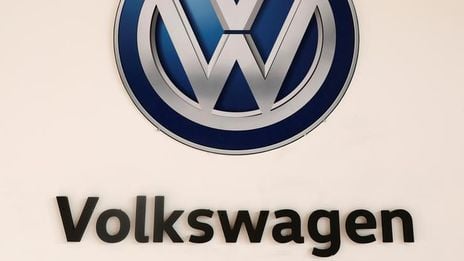Europe's biggest carmaker has said it is in advanced talks with the Justice Department over a $4.3 billion settlement, adding that meant it would exceed current provisions set aside to cover the costs of the scandal.
Volkswagen (VW) has already announced 18.2 billion euros (15.75 billion pounds) of provisions to cover the costs of "Dieselgate," of which 16.2 billion euros were booked in 2015.
"We are counting on a sum of 16 billion plus X. The X is likely to be in the 2 to 4 billion range," the source said, speaking on condition of anonymity.
VW declined to comment.
The German company's supervisory board was meeting on Wednesday to approve the draft deal with the Justice Department, which would be a major milestone in its attempts to recover from the biggest business scandal in its 80-year history.
VW shares rose as much as 4 percent in early trade to their highest since the scandal broke in September 2015..
The company's acceptance of the settlement agreement and its plan to plead guilty to criminal misconduct will be announced later Wednesday in Washington by the Justice Department and environmental regulators, people briefed on the matter said.
However, the 16-month saga could still have further to run, with U.S. authorities investigating who was individually responsible for the cheating and VW facing probes and lawsuits in Europe and elsewhere.
"This is a partial victory, but VW is by no means out of the woods yet," said Ingo Speich, a fund manager at Union Investment which holds about 0.6 percent of VW preference shares. "There are still considerable litigation risks."
"Facts need to be revealed now and, if necessary, further steps need to be taken regarding individuals to regain the trust of capital markets," Speich added.
Most analysts had expected the U.S. settlement, which VW has raced to conclude before the Obama administration bows out on Jan. 20, to cost the carmaker around 3 billion euros.
VW admitted in September 2015 to installing secret software in hundreds of thousands of U.S. diesel cars to cheat exhaust emissions tests and make them appear cleaner than they were on the road, and that as many as 11 million vehicles could have similar software installed worldwide.
Despite the scandal, the group said on Tuesday it notched up record sales last year, led by premium brands Audi and Porsche, though analysts say it may have offered big discounts on VW brand cars which have suffered most from the crisis.
At 1415 GMT, VW shares were up 2.8 percent at 150.15 euros, up sharply from their low of 86.36 euros after the scandal broke, but still short of pre-crisis levels above 160 euros.
QUESTIONS REMAIN
Sources familiar with the matter told Reuters on Tuesday the Justice Department settlement would not end its investigation into individual misconduct and more executives could face charges after Oliver Schmidt, who was a manager in charge of VW's environmental and engineering office in Michigan, was charged on Monday with conspiracy to defraud.
Erik Bomans, a managing partner at Deminor which is working with some investors on a claim against VW, said those responsible for the scandal had to be brought to justice.
"What we hope is that there has not been a trade-off in the discussions between Volkswagen and the U.S. Department of Justice, a trade-off that could be ‘we as a company plead guilty and we are willing to pay a big fine, but in exchange for that, you, Department of Justice, you allow us ... not to mention anything about the personal involvement of certain key, senior managers of the company'," he said.
Greg Archer, director of clean vehicles at green campaigners Transport and Environment, said VW's admission of criminal misconduct in the United States was unlikely to have implications for lawsuits in Europe, where a loophole in the regulations has effectively allowed carmakers to routinely exceed official emissions limits.
The European Commission in December began legal action against Germany, Britain and five other EU member states for failing to police emissions test cheating.
"They are ineffective and they are in urgent need of reform," Archer said of the national regulators responsible for approving new vehicles in the EU.
(Additional reporting by David Shepardson, Edward Taylor, Simon Jessop and Alissa de Carbonnel; Writing by Mark Potter; Editing by Keith Weir)
By Andreas Cremer






